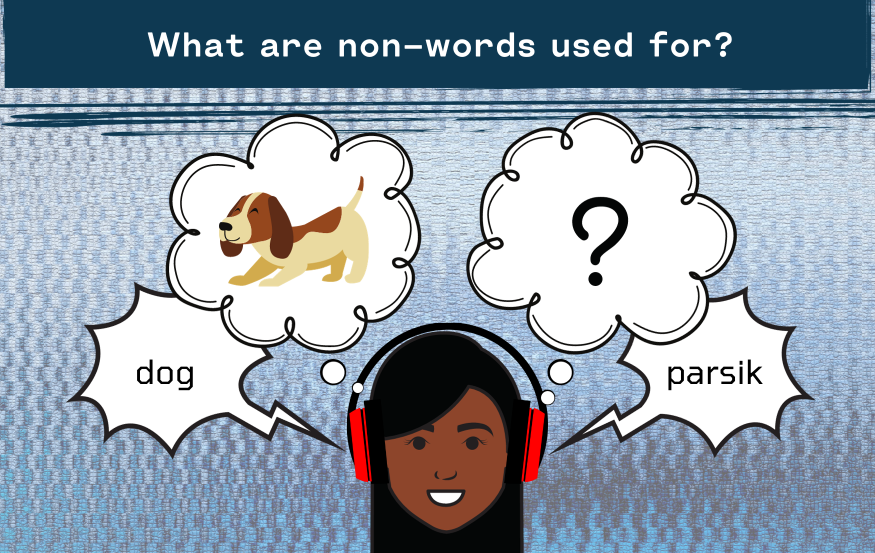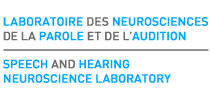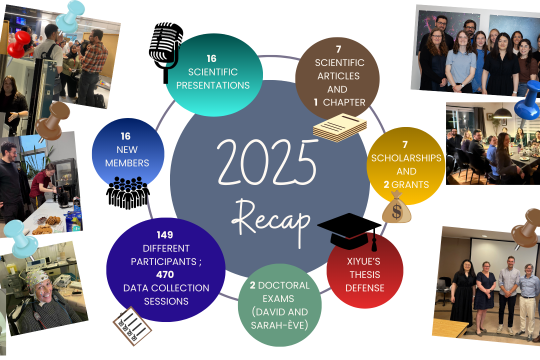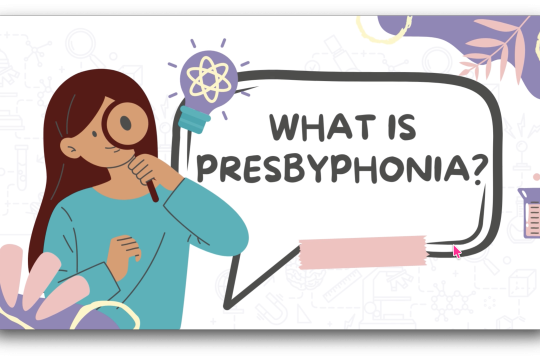In the experiments conducted in the lab, we frequently use non-words, that is, made-up words.
For example, we may ask participants to repeat invented words they hear through headphones out loud, or to determine if two non-words are identical. But why not use real words?!
There is an important distinction between words and non-words. Real words, which we have already heard or read, are stored in our long-term memory with their meanings. It is as if the words we know are inscribed with their definitions in a mental dictionary. This dictionary is often called the “mental lexicon”. When we hear a word that is familiar to us (e.g., “dog”), it is this memory inscription that allows us to recognize that it is a real word and access its meaning (e.g., “It’s a four-legged animal that loves bones!”).

Non-words, unlike words, are not stored in our long-term memory because we have never been exposed to them. Therefore, to correctly repeat a non-word (e.g., “parsik”), one must have accurately perceived each of the sounds that make it up (e.g., p-a-r-s-i-k). If even one of the sounds is misperceived, an error will occur. For example, if I hear the sound [ɔ] (like in the word door) instead of the sound [ɑ] (like in the word park) I might pronounce the non-word as “porsik” instead of “parsik”. With real words, difficulty in perceiving speech sounds can be compensated for by our knowledge of the language. For example, imagine being asked to repeat a list of words that includes the word “tip”. Even if you heard this word produced with an [i] sound (like in beep) instead of the [ɪ] sound of tip, you could still manage to correctly repeat the word because you know that the word “teep” doesn’t exist.
The use of non-words allows us to study the ability to perceive speech sounds while minimizing the influence of knowledge related to real words stored in our long-term memory. Furthermore, this knowledge related to the mental lexicon pertains to language, not speech (for more information, read our article on the difference between speech and language). That’s why many members of our laboratory who study the ability to perceive or produce speech sounds use non-words!



